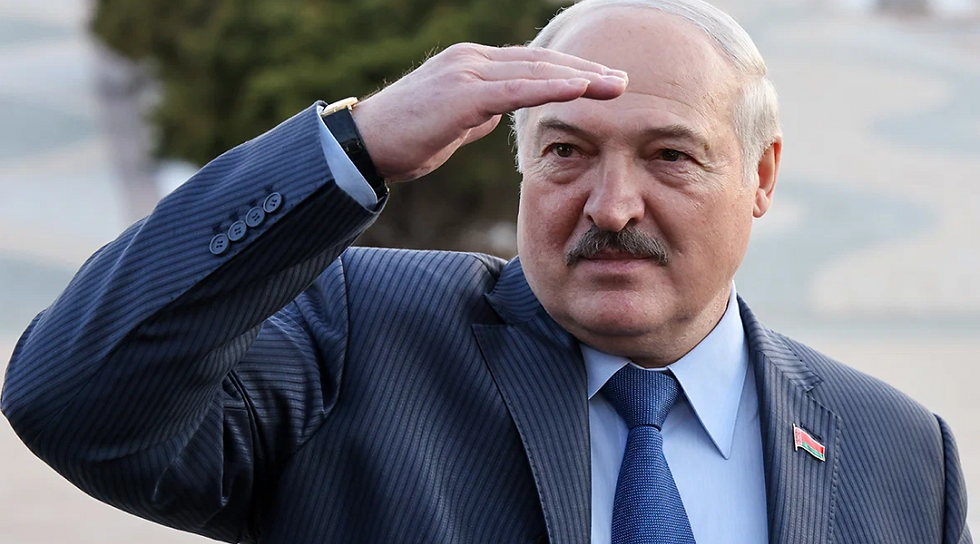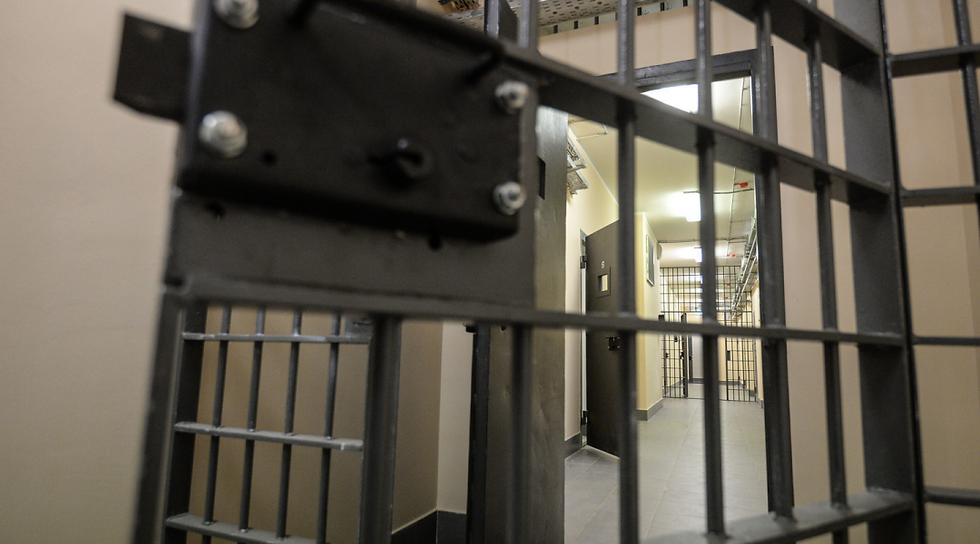"The Way Home" from Lukashenko or a direct ticket to a concentration camp
- Feb 11, 2023
- 7 min read
Updated: Apr 4, 2023
Did the Belarusian "fugitives" run home to repent? By the dozens? By the hundreds? By the thousands? Let’s find out
Recently, Lukashenko signed a decree on the creation of a special commission to work with "those who want to return to their homeland". Unable to reach the Belarusians abroad, the regime demands that they repent, write denunciations on themselves and "crawl home on their knees". It sounds like the ravings of a madman: people who have been tortured, beaten, maimed, and tried to be put behind bars — should they apologize for that? It’s a crooked mirror. But this is what Lukashenko’s idea-fix looks like.
At the same time, the dictator intentionally understated the number of those who left, at least 100−150 times, naming the figure of two or four thousand people. And this is a deliberate distortion of reality. Because the regime perfectly understands that there will be no "mass repatriation" of the Belarusians.
Most of them realize that the "way home" from Lukashenko is a direct ticket to a concentration camp. And any surveys in social networks show that the key conditions for the Belarusians — including those for returning home — have not changed. They are a complete cessation of repressions, release of all political prisoners, and, most importantly, departure of the Lukashenko regime from power.
What does the regime expect?

In part, it is a "roll call". After all, someone can naively appeal to the so-called "commission". It is clear that such people will be very few — and not even the two or four thousand that Lukashenko talks about. However, even a couple of dozens of "applications" will allow Lukashenko to say that the process has started, and the "fugitives" have run to repent. The number of "turncoats", of course, will be falsified. Also, the regime has prepared some people for their ostentatious return. And the texts for their "penitential videos" are written in advance. Even if there are only a couple of dozens of them.
In any case, if you or your acquaintances for some reason consider taking advantage of the "attraction of unprecedented generosity" from Lukashenko — it is important to understand: the very fact of your application and the data provided in it will later be used not for the so-called "return", but for the initiation of criminal proceedings.
And not even upon arrival, but as part of the proceedings in absentia. The only reason the criminal cases against the Belarusians who left the country are not opened en masse is that the regime simply does not have enough resources for it. And so that the "investigators" do not have any "cold cases". But the "confession of guilt" in the form of an application to the commission will make their life very easy, and the tool of absentee courts will allow them to quickly conduct an "investigation" and pass a sentence in absentia with confiscation of property. And that’s it, the case is closed.
Secondly, anyone who returns by "invitation" from Lukashenko will immediately and voluntarily put themselves on the hook of the repressive system. After all, even if you record a "penitential video" or pay monetary compensation for "the damage done," you get no guarantees that tomorrow they won’t find a subscription to an "extremist channel" in your phone or identify (and in fact fabricate) some other violation of the concentration camp regime.
But Lukashenko’s main motive and calculation is, of course, to try once again to deceive the West. To sell the West the illusion of a "thaw" in the hope of restoring recognition and at least partial lifting of sanctions.
At the same time, it is obvious that Lukashenko is not going to make serious concessions. Instead, he imitates pseudo-liberalization, announcing the creation of a commission on the "fugitives" and readiness to forgive a small number of "misguided" Belarusians.
Another point is indicative here — when discussing his idea-fix with the so-called chairman of the Supreme Court Sukalo, Lukashenko pointed out the inconsistencies. Namely, the fact that there are still judicial decisions for the "crimes" that are potentially "forgiven" to returnees inside the country.
Why is this an important point?

It suggests that Lukashenko plans to scale his scheme with "fugitives" inside the country as well. Namely to "pardon" after "repentance" and payment of compensation some part of those convicted for political reasons. For example, those who have been jailed for "misdemeanors" such as a couple of comments on social networks. After all, the dictator understands that the West will definitely not buy his pseudo-thaw unless it at least partially touches the people inside Belarus.
However, at the same time he has to find convincing arguments for his security forces and riot police to explain to them why after several years of mass repressions and terror to which they devoted all of themselves without reserve, some of the "enemies" now have to be suddenly "pardoned".
It’s no secret (and Lukashenko himself has already openly admitted it) that the security forces are the main support of his regime. And obviously, they are unlikely to be very happy that all their "merits" and years of rolling the Belarusians in asphalt will result in some part of those Belarusians going free — even if very conditionally. This will look like the very real betrayal to Lukashenko’s key supporters.
Therefore, Lukashenko must sell them the idea of a "vanquished enemy". Broken, humiliated, and begging for mercy. This is exactly the role Lukashenko envisions the "repentant fugitives" to play, as well as those who will be "pardoned" according to the same scheme inside Belarus.
And that is why the commission included such characters as, for example, Baskov, who was an accomplice in the murder of Roman Bondarenko, the most odious propagandists like Azarenok, Mukovozchik and Pustovoy, Lukashenko’s Gestapo leaders like Tertel, Gora, Kubrakov and Shved — so that the commission doesn’t look not harsh enough. The dictator’s supperters must believe that they really "won". And the West must believe that Lukashenko has taken the way of "correction" and is gradually ready to make some steps forward.
But there is a question for us, Belarusians. Do we also have to believe it? Believe Lukashenko?

Believe and agree that the pressure on his regime must cease if he "liberates" some part of political prisoners in return? But this freedom is completely bogus. Our country will remain a concentration camp as long as this regime exists.
And what — we have to agree with this? Agree that not all political prisoners will be freed? That the destroyed NGOs and independent media will not restore their work inside the country. That instead of the destroyed civil society and democracy we will receive the so-called "All Belarusian People’s Assembly" and "Belaya Rus" - the Lukashenko’s party. Maybe we should join it and pay membership fees?
Maybe we need to accept that Belarus will remain a military springboard and continue to turn into a Russian "province"? Or that hundreds of thousands of Belarusians won’t return home, because no sane person would voluntarily take a one-way ticket straight to the concentration camp called not Belarus but "Belorussia".
It seems the answer is obvious. But obviously not for everyone. After all, today we hear the voices of those who really think that it is necessary to make concessions to the regime grow louder and louder.
That no new sanctions should be imposed on it. That, on the contrary, they should be lifted. That we can turn a blind eye to his complicity in the war against Ukraine, because he has not yet joined it on the ground. So what if he opened the border for the Russian army to invade Ukraine and massacre the Kiev region? So what, it provides the aggressor with full infrastructural and logistical support? So what, it produces and supplies Russia with shells? Just 800 missile strikes on Ukraine were made from the territory of Belarus — this is nothing, right?
But indulgences for Lukashenko’s regime, according to some politicians, will give him "room to maneuver". Allow it "to escape from the embrace of the Kremlin," which, as it turns out, was shoved into by the sanctions, but not the policy of the Lukashenko regime itself. The sanctions are to blame for his hijacking the plane, then the migration crisis, and finally turning Belarus into an aggressor state, aren’t they?
"Let's take the sanctions off him, let’s stop the pressure and turn the page. The pressure strategy is not working, so let’s go back to 2015 or 2019, let’s wait until the regime itself 'evolves' and democracy gradually descends on us,"
— say these politicians, whose rhetoric somehow amazingly coincides 100% with the rhetoric of regime "analysts" like Preygerman. Or the behind-the-scenes rhetoric of his "diplomats" trying to sell these theses to the West. Coincidence? Highly doubtful.
So am I — as a politician and simply as a citizen — ready to forget, fold my hands and stop fighting? No, I’m not. Neither is my entire team. We remember the demands of the Belarusian people. And we see no reason to abandon or retreat from them. We see no reason to let Lukashenko evade responsibility.
We will do everything possible to maintain pressure on his regime. Until all Belarusians, convicted for political reasons, are released without exception. Until all Belarusians are able to return home, not to the concentration camp "Belorussia". Until the repression stops completely — along with the existence of the Lukashenko regime.
Does this seem unrealistic? Then ask yourself this: if the strategy of pressure on the regime does not work, if sanctions do not work and do not bring us closer to the goal — then why some politicians try to convince us that in order to achieve our goals, sanctions must be removed? If it is not pressure on the regime that forces it to imitate the beginning of "liberalization", if it is not the effect of the sanctions already imposed and the fear of new ones that are the real reason for this whole campaign called "let's negotiate" - then what is it?
It is probably trite to quote Gandhi. Still, I want to recall his words, which perfectly describe what is going on:
"First they ignore you, then they laugh at you, then they fight you. And then you win."







Commentaires